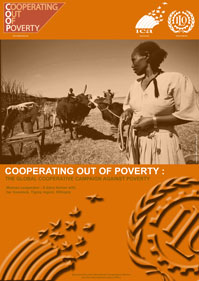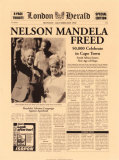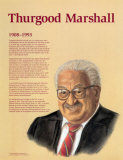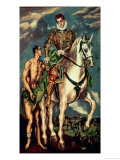|
|
|
|
|
|
|
PEACE & JUSTICE CALENDARS
|
|
|
|
|
|
|
|
|
|
|
|
|
|
|
|
|
|
|
|
|
|
|
|
|
|
|
|
|
|
 |
|
|
|
|
|
|
Wangari Maathai
b. 4-1-1940; Ihithe village, Colony of Kenya
d. 9-25-2011; Nairobi, Kenya (ovarian cancer)
Wangari Muta Maathai, an environmental and political activist, received a Nobel Peace Prize in 2004 for “her contribution to sustainable development, democracy and peace.” She was awarded the Right Livelihood Award in 1984.
In the 1970s, Maathai was the founder the Green Belt Movement, an environmental non-governmental organization focused on the planting of trees, environmental conservation, and women's rights.
Maathai earned a degree in biology at Mount St. Scholastica (now Benedictine College) in Atchison, Kansas, and a Master of Science in Biological Sciences from the University of Pittsburgh. After the job as a research assistant in Nairobi was given to someone else based on her gender and tribal affiliation, Maathai was offered another research position which lead to a doctorate in at the University of Munich and eventually to a professorship at the University of Nairobi.
Wangari Maathai quotes ~
• “In a few decades, the relationship between the environment, resources and conflict may seem almost as obvious as the connection we see today between human rights, democracy and peace.”
• “It's the little things citizens do. That's what will make the difference. My little thing is planting trees.”
• “We are very fond of blaming the poor for destroying the environment. But often it is the powerful, including governments, that are responsible.”
• “I have warned people against false beliefs and misinformation such as attributing this disease to a curse from God or believing that sleeping with a virgin cures the infection. These prevalent beliefs in my region have led to an upsurge in rape and violence against children. It is within this context, also complicated by the cultural and religious perspective, that I often speak. I have therefore been shocked by the ongoing debate generated by what I am purported to have said. It is therefore critical for me to state that I neither say nor believe that the virus was developed by white people or white powers in order to destroy the African people. Such views are wicked and destructive.”
• “Anybody can dig a hole and plant a tree. But make sure it survives. You have to nurture it, you have to water it, you have to keep at it until it becomes rooted so it can take care or itself. There are so many enemies of trees.”
• “In the course of history, there comes a time when humanity is called to shift to a new level of consciousness, to reach a higher moral ground. A time when we have to shed our fear and give hope to each other.”
• “To the young people I say, you are a gift to your communities and indeed the world. You are our hope and our future.”
• “Throughout Africa, women are the primary caretakers, holding significant responsibility for tilling the land and feeding their families. As a result, they are often the first to become aware of environmental damage as resources become scarce and incapable of sustaining their families.”
• “The traditional ways were wrongly disowned by Christianity - in hindsight, medicine men were not demons but very important counsellors in the community.”
• “Using trees as a symbol of peace is in keeping with a widespread African tradition. For example, the elders of the Kikuyu carried a staff from the thigi tree that, when placed between two disputing sides, caused them to stop fighting and seek reconciliation. Many communities in Africa have these traditions.”
• “In the course of history, there comes a time when humanity is called to shift to a new level of consciousness, to reach a higher moral ground. A time when we have to shed our fear and give hope to each other.”
editor note ~ don't you think that it is interesting that the symbol of Christianity, the cross, is sometimes referred to as a “Tree”, and should be used as the Kikuyu elders did with the staff?
|
|
|
|
Sean MacBride
b. 1-26-1904; Paris, France
d. 1-15-1988; Dublin
Sean MacBride, a part of the Irish Republican Army and Minister of Foreign Affairs for Ireland, was active in the United Nations, Amnesty International and received the Nobel Peace Price in 1974. He was the son of actress and activist Maud Gonne.
|
|
|
|
Nelson Mandela
b. 7-18-1918; Mvezo, Union of South Africa
In 1962 Nelson Mandela was sentenced to life in prison for his anti-apartheid activities and served 27 years. After his release he led his poltical party in the negotiations for multi-racial democracy in 1994. As President of South Africa from 1994 to 1999, he gave priority to reconciliation.
Mandela was awarded the 1993 Nobel Peace Prize.
• more Nelson Mandela posters
• more Historic Headlines posters
|
|
|
|
Horace Mann, “Father of American Public Education”
b. 5-4-1796; Franklin, Massachusetts
d. 8-2-1859; Yellow Springs, OH
Education reformer Horace Mann was a lawyer and politican who had no particular interest in education before he was appointed in 1837 to the paid position of secretary of the newly created board of education of Massachusetts, the first such position in the United States. He went on to serve as the president of Antioch College from 1852 until his death.
Horace Mann quote ~
• “...be ashamed to die until you have won some victory for humanity.”
• “Education, then, beyond all other devices of human origin, is the great equalizer of the conditions of man, - the balance-wheel of the social machinery.”
FYI - Mann was the brother-in-law of Nathaniel Hawthorne.
|
|
|
|
George Marshall
b. 12-31-1880; Uniontown, PA
d. 10-16-1959
George Marshall was the chief military adviser to FDR and considered the “organizer of victory” by Winston Churchill for his work for the Allies in World War II. Marshall was awarded the 1953 Nobel Peace Prize for his ‘Marshall Plan’, a plan for rebuilding Europe supported as Secretary of State under Eisenhower. He was also was named TIME's Man of the Year in 1944 and 1948.
• George Marshall at Amazon.com
|
|
|
|
|
|
|
Martin of Tours
b. 316 AD; modern day Hungary
d. 11-8-397; modern day France
Martin of Tours is one of the most familiar and recognizable saints remembered for his refusal to fight as he determined that his faith prohibited him from fighting, saying, “I am a soldier of Christ. I cannot fight.”
FYI - his name, Martin, is derived from Mars, the Roman god of war.
|
|
|
|
Harriet Martineau,
b. 6-12-1802; England
d. 6-27-1876
Writer Harriet Martineau was a philosopher, journalist, abolitionist and feminist. Because of her deafness, and being an “uneducated” woman, the founding of the science of sociology is attributed to Auguste Comte, and Martineau is considered the “first woman sociologist”.
FYI - An invalid much of her life, Martineau may have been the inspiration for the character of Mrs. Jellyby in Charles Dicken's Bleak House; and an early suitor was Erasmus Darwin, brother of Charles Darwin.
Harriet Martineau quotes ~
• “You had better live your best and act your best and think your best today; for today is the sure preparation for tomorrow and all the other tomorrows that follow.”
• “What office is there which involves more responsibility, which requires more qualifications, and which ought, therefore, to be more honorable, than that of teaching?”
• “The sum and substance of female education in America, as in England, is training women to consider marriage as the sole object in life, and to pretend that they do not think so.”
• “Men who pass most comfortably through this world are those who possess good digestions and hard hearts.”
• “For my own part, I had rather suffer any inconvenience from having to work occasionally in chambers and kitchen ... than witness the subservience in which the menial class is held in Europe.”
• Harriet Martineau's Autobiography: Vol I
|
|
|
|
Colman McCarthy
b. 3-24-1938; Glen Head, NY
Colman McCarthy, a columnist for The Washington Post for 28 years, directs the Center for Teaching Peace, a non-profit organization that helps schools establish peace studies programs.
Colman McCarthy quotes ~
• “I admire elementary school teachers immensely. I urge everyone ... to write a letter to a former grade school teacher who is remembered with affection and say thanks.” I'd Rather Teach Peace
• “Unless we teach our children peace, someone will teach them violence.”
• “I'd prefer that my students don't ask questions. Instead, be braver and bolder: question the answers. What answers? Those from anyone who says the answer is violence. Of all the lies, that's the grossest.”
• “What makes us happy is service to others. If schools don't expose students to the joys of community service, we graduate people who are idea rich but experience poor. In these addled times of leave no child untested, we think it's enough to pound ideas into the kids' heads. You can make all A's in school and go out and flunk life.”
• “The most important act of peacemaking? Your next one. Few of us will ever be called on to do great things, but all of us can do small things in a great way.”
• “It's too easy only to blame the militarists, racists, sexists and other pushers of violence for the mess we're in. What is harder is self-examination, moving beyond caring by looking inward to ask the personal question: What more should I be doing everyday to bring about a peace and justice based world, whether across the ocean or across the living room?”
• “Everyone’s a pacifist between wars. It’s like being a vegetarian between meals.”
• “Too many schools process students as if they are slabs of cheese going to Velveeta High on the way to Cheddar U and Mozzarella Grad School.”
• “To oppose ROTC, as I have since my college days in the 1960s, when my school enticed too many of my classmates into joining, is not to be anti-soldier. I admire those who join armies, whether America's or the Taliban's: for their discipline, for their loyalty to their buddies and to their principles, for their sacrifices to be away from home. In recent years, I've had several Iraq and Afghanistan combat veterans in my college classes. If only the peace movement were as populated by people of such resolve and daring.”
• “Wars aren't stopped by fighting wars, any more than you can fight fire with fire. You fight fire with water. You fight violence with nonviolence.”
• “It's too easy only to blame the militarists, racists, sexists and other pushers of violence for the mess we're in. What is harder is self-examination, moving beyond caring by looking inward to ask the personal question: What more should I be doing everyday to bring about a peace and justice based world, whether across the ocean or across the living room?”
|
|
|
|
|
|
previous page | top | next
peace & justice activists list | a | b | c | d | e | f | g | h | i-j | k | L
| MA | Me-Mi | Mo | Mu | n | o | p | r | s | t | u-v | w | x-y-z
|
|
I have searched the web for visual, text, and manipulative curriculum support materials - teaching posters, art prints, maps, charts, calendars, books and educational toys featuring famous people, places and events - to help teachers optimize their valuable time and budget.
Browsing the subject areas at NetPosterWorks.com is a learning experience where educators can plan context rich environments while comparing prices, special discounts, framing options and shipping from educational resources.
Thank you for starting your search for inspirational, motivational, and educational posters and learning materials at NetPosterWorks.com. If you need help please contact us.
|
|
|























